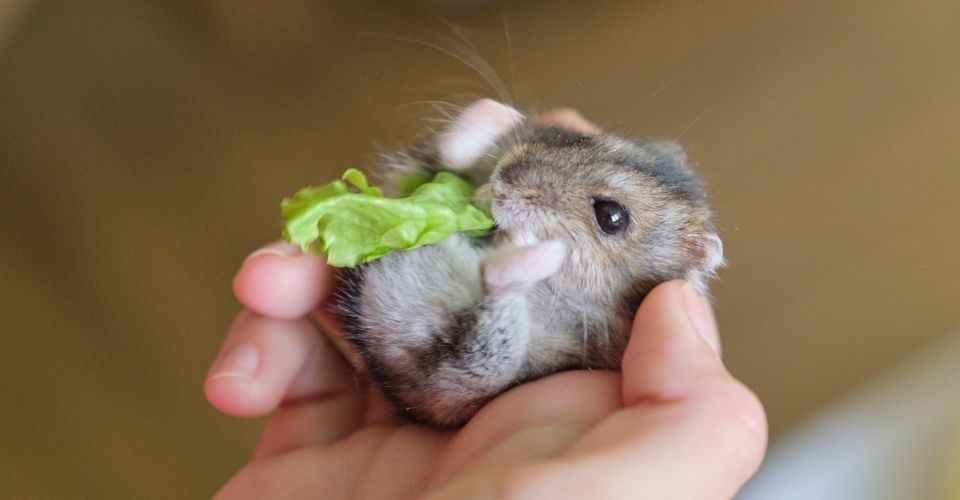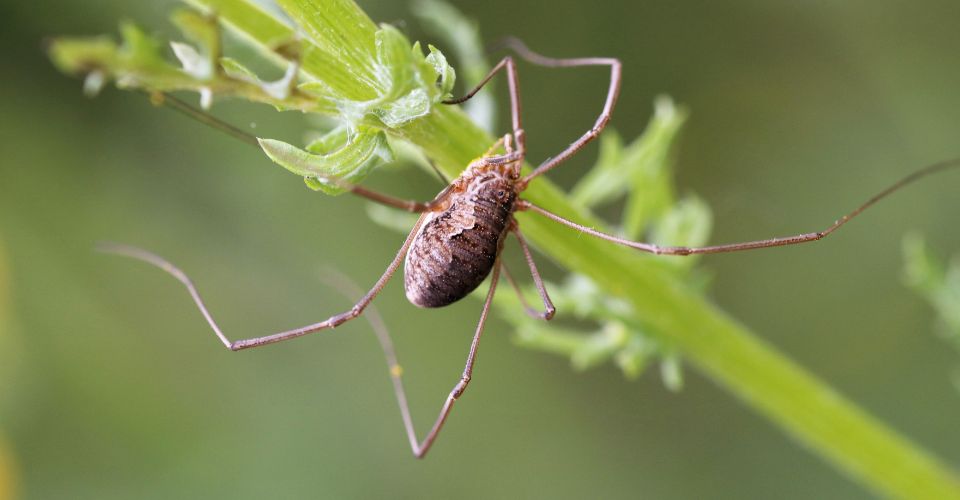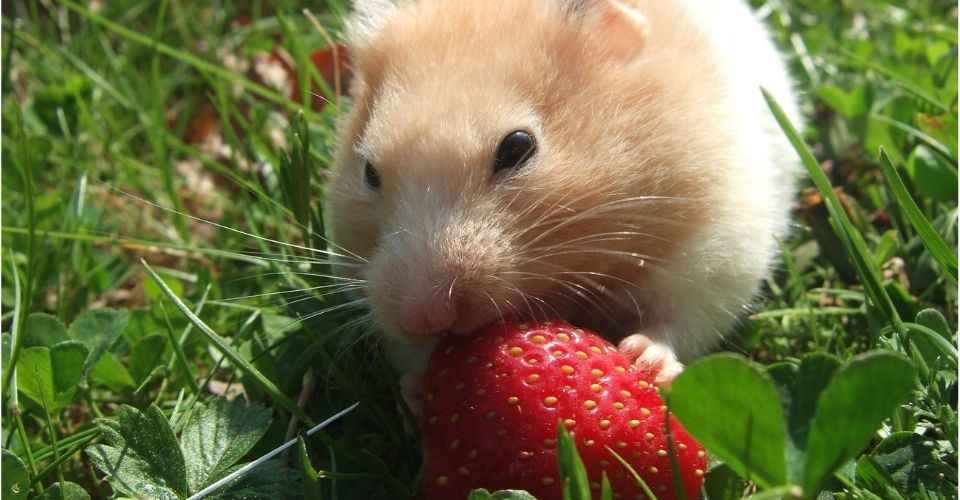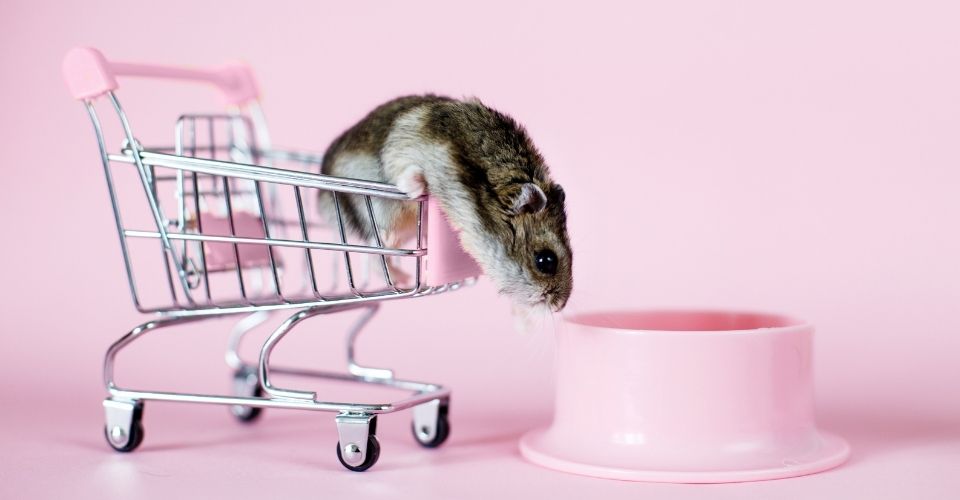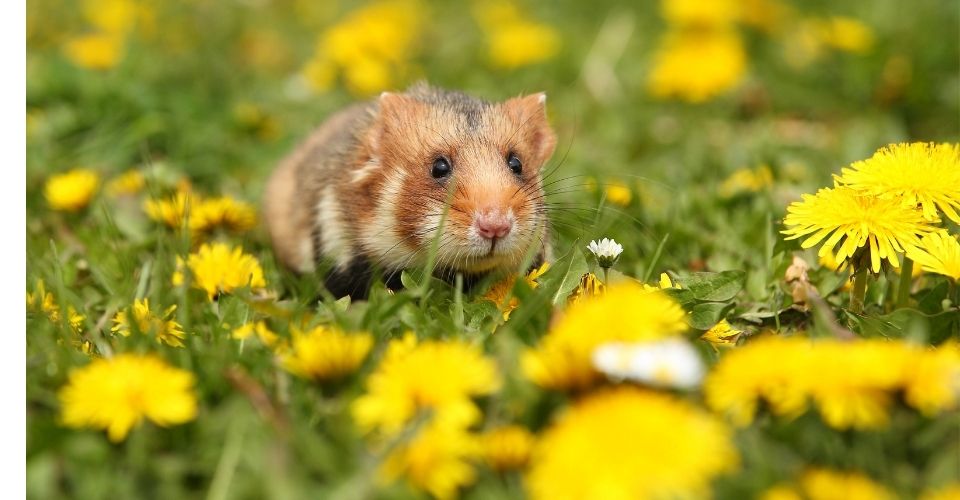Hamsters are known to be fond of leafy greens of the likes of spinach and lettuce, but can hamsters eat celery? Yes, hamsters can eat celery, and it is entirely safe for them to consume it but only in moderation.
Celery is a marshland plant that has been grown as a vegetable for centuries. Celery is considered a very healthy source of multiple vitamins and minerals. Celery’s low sugar content is also seen as a plus, adding to its tag of ‘superfood.’
Hamster keepers are often found deliberating over the right foods for hamsters and whether or not a certain food is okay for their hamsters. Especially when it comes to celery, you need to be sure if hamsters can eat celery leaves or celery sticks. While this is clear that it is safe for hamsters to eat celery, it is vital to know all the ins and outs before feeding celery to your hamster.
Can Hamsters Eat Celery?
The only reason you keep a pet is that you love them, and one of the human ways of showing love is offering food to your loved ones. The same is the case when it comes to our pets; in this case, hamsters. You’d want your hamster to try eating everything alongside you, and celery is no exception. So, can hamsters eat celery? All breeds of hamsters can eat celery!
This, however, is another debate regarding what parts of celery hamsters can eat or how celery can be of benefit to them, or the risks celery poses to them.
Can Hamsters Eat Celery Leaves
Hamsters can eat celery leaves as they are edible and completely safe to consume. Hamsters, however, may not take a liking to these leaves as they are generally bitter. Hamsters generally prefer sweeter foods to eat, and although some hamsters may eat celery leaves, do not expect them to enjoy eating the leaves.
Can Hamsters Eat Celery Sticks
Hamsters love to eat celery sticks. As opposed to celery leaves, celery sticks are crunchy and fibrous at the same time; this is a big appeal to hamsters’ appetite. Hamsters are fond of munching on crusty food, and celery is no exception. Care, however, needs to be taken when offering celery sticks to your pet rodents because of celery’s stringy texture; always remove the strings and chop the sticks to small bite-size pieces before introducing them in the hamster’s cage.
Do Hamsters Like Celery
You cannot particularly say that hamsters like celery, but they do not hate it either. Celery has a particular scent to it that often mesmerizes humans. Hamsters, too, are attracted to it, but not every hamster would continue eating it. As with humans, hamsters also have different tastes and likings. Though, generally, hamsters do tend to like celery.
These cute little rodents are often picky with their veggies, and the preference to eat a certain vegetable would vary from hamster to hamster. You can only find out by introducing celery in your hamster’s cage and see how it responds. Celery is a nutritious and safe food for your little furry friend that most hamsters do tend to like eating.
Is Celery Good For Hamsters
Hamsters are omnivores, and their staple diet mainly involves seeds, dry grasses, and worms. This, however, is not enough to provide them their required nutrition, which is why it is recommended to add to their diet a mix of vegetables and fruits like grapes. Celery is nutritious yet low on calories and can prove to be the perfect snack for your hamster.
Here is why celery is a great choice of food for hamsters:
Rich in Antioxidants
Modern research has shown celery to be a good source of antioxidants. It contains flavonoids, Beta Carotene, and a dozen other antioxidants, which play a critical role in maintaining organ health. Celery can boost your hamster’s immune system and organ health and should be added to their diet.
Low Calories Count
Despite all the benefits that celery offers, it has minimal calories. Hamsters are timid rodents and are always prone to obesity and diabetes; celery’s low calories count ensures that they get their required nutrition without the threat of contracting diabetes or gaining weight.
Good Source of Potassium
Muscles, bones, and our red blood cells are reliant on the presence of potassium in our bodies; a moderate influx of potassium is vital to keep us, or our hamsters, healthy. Celery, being a rich source of potassium, does that for our hamsters. Potassium can also keep the hamster’s bones in check.
Snacking on celery can suffice your hamster’s need for potassium.
Contains Vitamins A & K
Vitamin A plays an important role in supporting the animal’s eyesight and maintaining its skin condition, which makes it essential for hamsters. On the other hand, Vitamin K has an even bigger role to play by helping the blood to clot. You only understand its value in case of an injury or an open wound to your hamster. Celery alone can answer all these problems by providing sufficient amounts of vitamins A and K to your hamster.
High Amount of Fiber
Hamsters’ teeth are continuously growing and can become a source of pain for them if they grow too long. This would also make them lose their appetite. To keep the teeth filed down, hamsters can chew on fibrous vegetables like celery, and avoid the discomfort of overgrown teeth.
The fiber present in celery will also keep the hamster’s digestive system functioning properly, and enable them to fully absorb the nutrients from the food.
Is Celery Bad For Hamsters
With hamsters and their food, it is all about very thin margins. Even the healthiest of foods can become a problem for your hamster if taken in abundance. As for celery, it can cause its own set of problems for your hamster if due diligence is not done beforehand.
Celery can cause some or all of these problems for hamsters:
Increased Urination
Celery, if fed too much, can make your hamster dehydrated since it can cause it to urinate excessively. Frequent urination itself is also a problem but can be avoided if celery is fed moderately.
Choking Hazard
Although hamsters like to store food in their cheek pouches, they cannot eat too much at the same time as they are almost always presented with a choking hazard. The food that they are being fed must always be cut into smaller bite-size chunks that these cute rodents can nibble on easily. Larger pieces of celery can either choke the hamster or can end up blocking its intestinal tract.
Also, the strings present in celery must be removed before feeding as they can also become a source of choking for hamsters.
Indigestion
As mentioned earlier, too much of anything can be risky for hamsters, and celery is no exception. A hamster’s digestive system is very sensitive; a heavy intake of celery can easily upset this digestive system. Your hamster is likely to face either of the two extremes of constipation or diarrhea. To avoid your hamster this discomfort, always follow the recommended dose and abstain from overfeeding.
Can Celery Kill a Hamster
No! Celery cannot kill a hamster. As with other foods, celery also makes hamsters prone to choking, diarrhea, and obesity. It doesn’t, however, mean that celery will end up killing our pups.
To avoid any fatal issues for your hamsters, ensure that they are not overfed. Also, celery has a stringy texture that can pose a choking risk for your hamster. Celery should be cut down to smaller chunks that limit the strings and make it easier for the hamsters to chew and swallow.
Can Dwarf Hamsters Eat Celery
Dwarf Hamsters can eat celery, but since they are shorter in size, their doses need to be monitored more carefully to not overfeed them.
Can Teddy Bear Hamsters Eat Celery
Teddy Bear Hamsters or Syrian Hamsters can eat celery just like all other breeds of hamsters. Just remember to follow the recommended dose.
Can Syrian Hamsters Eat Celery
Syrian hamsters are the same as Teddy Bear hamsters and can undoubtedly eat celery. Again, the recommended doses must never be exceeded.
Feeding Celery to Hamsters
To sum it all up, celery is a nutritious vegetable that can provide hamsters with all the required nutrition they may otherwise lack in their routine diet, albeit the frequency and amount of celery must be controlled.
Follow these celery feeding tips to keep your hamster healthy and running:
- Ensure that your hamster is an adult and not a juvenile. Celery is crunchy and can be difficult to chew for younger hamsters. Young pups are also more likely to develop digestive issues because of celery; it is best to avoid feeding it to the younger ones.
- Clean the celery thoroughly before feeding it to your hamster. Cleaning it will rid it of any pesticides, dirt, or germs.
- Only feed fresh celery to your hamster that is still crunchy and not soggy. Remove the seed as it is bitter and is not desired by hamsters.
- Very few hamsters like eating celery leaves; most hamsters prefer eating celery sticks only. Introduce a very small amount of celery leaves in the cage and notice the hamster’s response. If the hamster eats the leaves, only then should you feed them more of it. Remove all the uneaten pieces of food from the cage.
- Chop off celery to the size of a quarter of a teaspoon. That is the recommended one-time dose for a hamster. Do not exceed this dose to avoid any problems for your hamster.
- Celery should only be fed to your hamster twice a week and not more than that. Different vegetables and fruits can be added to the diet to ensure that your hamster has a well-balanced diet.
It is important to note that celery must only be fed as a form of treat or snack and not as a staple diet to your hamster.

